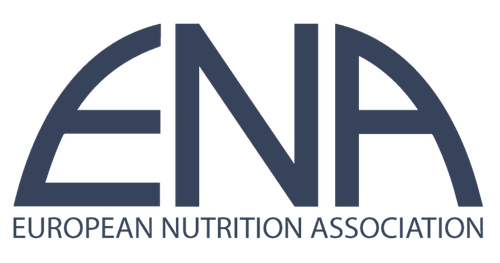ENA has the goal to compile the most recent insights of different nutritional aspects and to describe/ communicate them weighing their importance to the overall nutritional functions, checking their degree of scientific evidence,comparing them to earlier statements related to the same topic. The statements of ENA appear in the following European languages: English, German, French, Italian, Spanish, Ukrainian, Portuguese.
EUROPEAN NUTRITION ASSOCIATION
Formally European Nutraceutical Association
WHO WE ARE
ENA is a scientific society, founded in 2005, committed to communicating to the interested public scientific facts and news related to nutrition as objectively as possible using an understandable language. Nowadays there is a rapidly growing wealth of scientific (and less scientific) studies, observations, opinions about nutritional questions. The relation of nutrition to health and longevity is being addressed, investigated, studied and published by many different bodies and institutions. E.g. the concepts of limiting ones food to “natural” sources versus the supplementation with functional food and nutritional supplements are being advertised by various scientific bodies but also by (partly opposing) interest groups, each of them supporting its statements with presumably “scientific studies”.
OUR GOALS
We comment on the progress of scientific knowledge about nutrition and its health effects and by this we keep you abreast of recent developments. ENA enjoys professional ties for the exchange of information with societies all over the world that are pursuing similar objectives.
Nutrition
We provide scientific evidence all about nutrition.
D’ENA
We run D’ENA, the Data bank on health Effects of Nutritional Active ingredients to human and animal body cells. Get the results of this unique collection of evidence on Nutrition - as a Corresponding Member to ENA
ADME
We run ADME, the computer simulation code predicting what the outcome of an in-vivo-study with probands might be, once we know the results of earlier human cell based in-vitro-experiments.
What is a Health Claim?
Expressing that a specific Nutritional ingredient/molecule augments the health of humans that is called a “Health Claim”. Inside the European Union, any Health Claim used by a producer or vendor for a food has to be approved by the European Commission, based on a “Scientific Opinion” expressed by the European Food Safety Association (EFSA). EFSA gives such a positive “Scientific Opinion” only if officially asked for and only if the Health Claim is proven by scientific evidence.
How to prove that a Health Claim for a given Nutritional Ingredient/ Molecule is true?
The gold standard for any such proof is a multi-centric, randomized, placebo controlled intervention study of 30 years duration. But that is hardly something that any producer can afford or wait for. Therefore it is accepted scientific practice to look for the change of certain effect-specific bio-markers, which would make it credible, that a desired Health Effect has been triggered by the consumption of a given Nutraceutical (Excample: Reducing ones usual output of F2-isoprostanes after consumption of vitamin C is accepted as a proof for antioxidative effect of vitamin C). That approach is widely accepted by EFSA. One single individual bio-marker -when measured in vivo from probands - is accepted to represent sufficiently the complex reactions in the human body. An alternative approach is favoured by us: Test in vitro the multitude of reactions which human organ cells can show when put into contact with the active molecules of an ingredient– and calculate in silico from those test results the reaction of the whole body to the active molecules in question. We consider this procedure “measure in vitro on cell basis and simulate in silico the whole body (in vitro: cell, in silico: body)” as equally if not more credible as the reliance on one single bio-marker measured over short term in vivo.
What do we have? What do we need?
Sufficiently accurate whole body in silico simulators are available, e.g. ADME. What we need is a systematic collection of all of man kind’s knowledge about the reaction of individual human body cells to different active ingredients/molecules. That is why ENA has started D’ENA. You can share your precious knowledge of such cell reactions to any individual active molecule from food/animal feed and get that knowledge integrated cost free into the D’ENA.
Target groups and organizational structure
ENA serves as a science-led reference center for the following target groups with- in Europe:
Interested consumers
Health professionals and medical doctors
Scientists
Food and Feed Industry
ENA is open for and welcomes membership by representatives of these target Groups, be it individuals, organizations or industry.
Benefits for ENA members
We evaluate the content and results of scientific, evidence based research with respect to food/feed.
We therefore:
- assess the often contradicting findings and draw conclusions,
- translate these conclusions into an easy understandable.
We facilitate:
- access to scientific publications
- publishing
We organize events, e.g.:
- scientific congresses
- workshops
- part-sessions on nutrition during conferences of third party associations
We interact with the members via:
- website
- individual information to questions from members, official bodies and other associations
- fact sheets
- position papers about "Health Claims” which are "on hold" by the European Food Safety Authority (EFSA) in order back them up with additional information
Become a member of ENA:
Fees:
Full membership: Annual Fees
Scientific topic centred membership for companies and associations: Euro 50.000
We also offer customized membership packages tailored to your specific needs.
📩 Contact us for more information: office@enaonline.eu
